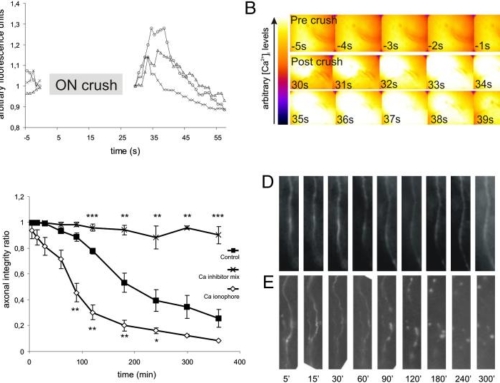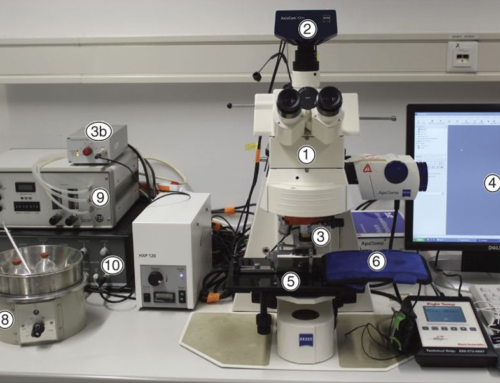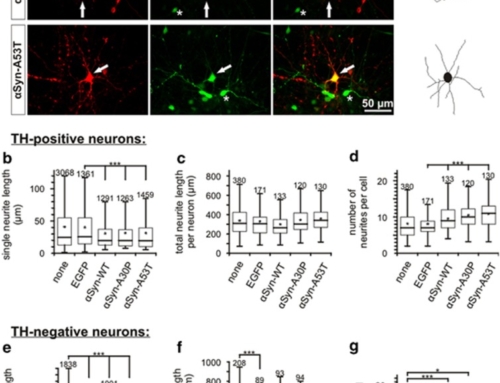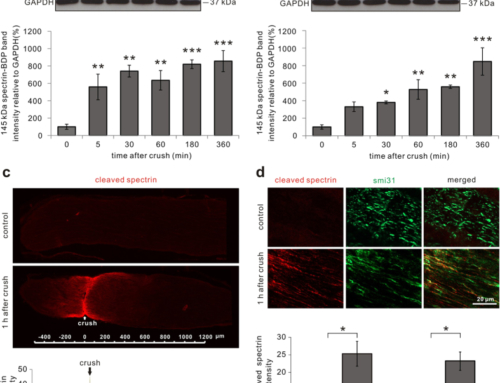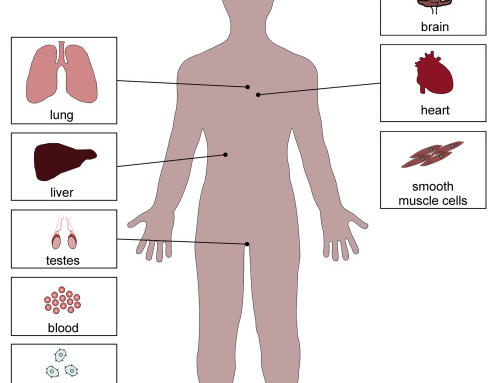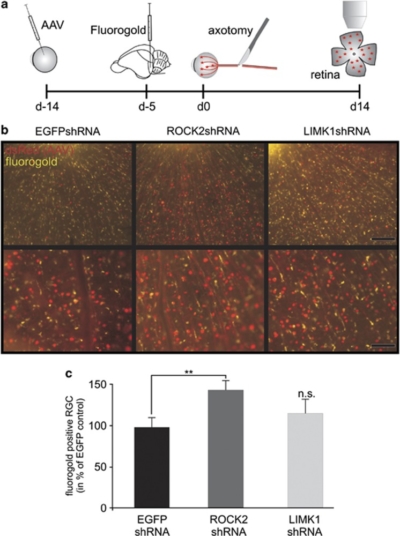
The Rho/ROCK/LIMK pathway is central for the mediation of repulsive environmental signals in the central nervous system. Several studies using pharmacological Rho-associated protein kinase (ROCK) inhibitors have shown positive effects on neurite regeneration and suggest additional pro-survival effects in neurons. However, as none of these drugs is completely target specific, it remains unclear how these effects are mediated and whether ROCK is really the most relevant target of the pathway. To answer these questions, we generated adeno-associated viral vectors to specifically downregulate ROCK2 and LIM domain kinase (LIMK)-1 in rat retinal ganglion cells (RGCs) in vitro and in vivo. We show here that specific knockdown of ROCK2 and LIMK1 equally enhanced neurite outgrowth of RGCs on inhibitory substrates and both induced substantial neuronal regeneration over distances of more than 5 mm after rat optic nerve crush (ONC) in vivo. However, only knockdown of ROCK2 but not LIMK1 increased survival of RGCs after optic nerve axotomy. Moreover, knockdown of ROCK2 attenuated axonal degeneration of the proximal axon after ONC assessed by in vivo live imaging. Mechanistically, we demonstrate here that knockdown of ROCK2 resulted in decreased intraneuronal activity of calpain and caspase 3, whereas levels of pAkt and collapsin response mediator protein 2 and autophagic flux were increased. Taken together, our data characterize ROCK2 as a specific therapeutic target in neurodegenerative diseases and demonstrate new downstream effects of ROCK2 including axonal degeneration, apoptosis and autophagy.
ROCK2 is a major regulator of axonal degeneration, neuronal death and axonal regeneration in the CNS.
Koch JC, Tönges L, Barski E, Michel U, Bähr M, Lingor P.
Cell Death Dis. 2014 May 15;5:e1225. doi: 10.1038/cddis.2014.191.
[PubMed]
